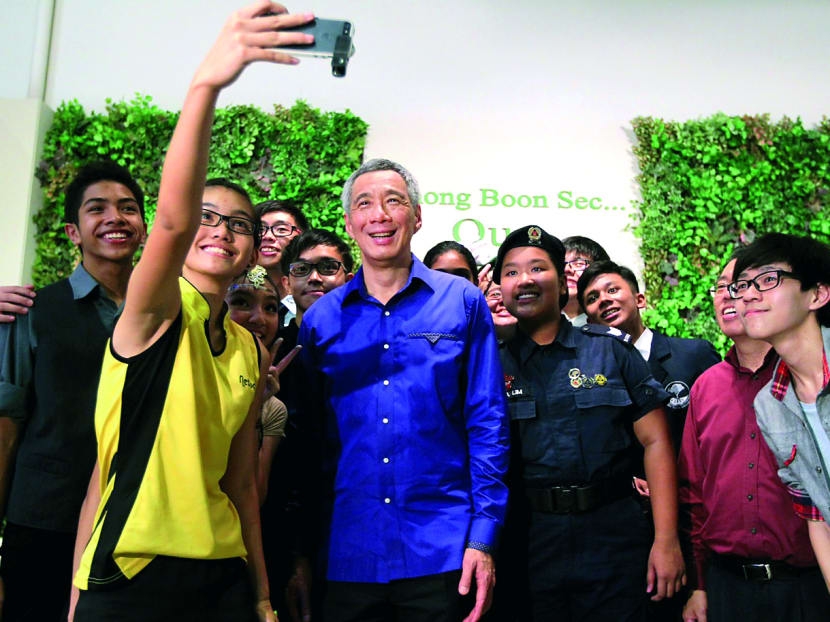Despite criticisms, education system delivers, says PM Lee
SINGAPORE — Although the education system here has often been criticised, it is essentially a good system that has delivered good results, said Prime Minister Lee Hsien Loong yesterday.

PM Lee Hsien Loong with a student from Chong Boon Secondary School during the school’s 20th anniversary celebrations yesterday. Photo: Don Wong
SINGAPORE — Although the education system here has often been criticised, it is essentially a good system that has delivered good results, said Prime Minister Lee Hsien Loong yesterday.
“We often see and read or hear criticisms of Singapore’s education system — it’s too structured, it’s too pressured, it’s too competitive, it’s too much hard work, (it’s) so stiff,” he said.
While he acknowledged the pressures faced by parents and students, Mr Lee said the Government had taken steps to address the issue and reduce unhealthy competition, such as ending the practice of publishing the names of top Primary School Leaving Examination performers and using a banding system, instead of grades, to assess students’ performance in co-curricular programmes.
“I think it has helped to reduce some of this pressure-cooking sentiment, that you must get it exactly right, the last one-quarter of a mark,” said Mr Lee, who was the guest of honour at Chong Boon Secondary School’s 20th Anniversary Dinner in his Teck Ghee ward.
However, while the Government tries to improve the education system, he added: “Don’t forget this is a good system and it delivers good results for us”.
Mr Lee said there is no youth unemployment problem here, unlike in many other countries. Graduates from Singapore’s schools, such as universities, polytechnics and the Institute of Technical Education, are highly sought after by employers and manage to get good jobs.
Singapore students have also performed well in international competitions and comparison studies, such as the Trends in International Mathematics and Science Study and the Programme for International Student Assessment (PISA), Mr Lee said.
He cited the recently-published results from a new PISA test, which had assessed 15-year-old students around the world for problem-solving skills.
“It’s a new test, no 10-year-series, no studying for the test. You need common sense, you need to be able to think, you need to have creativity and judgment,” he pointed out.
About 1,400 Singapore students were randomly selected by the PISA team for the test.
Every secondary school had students who participated and they formed a representative sample of Singapore’s student population.
Singapore students came up tops among the territories and countries that had participated, outperforming students in developed countries such as in Europe and the United States, as well as Asian economies that have high-pressure education systems, such as Japan, South Korea and Hong Kong.
“I think the test shows that we are not doing badly. We are not near the bottom, we are not even at the middle. We are well above many countries in the world,” Mr Lee said.
However, he added, Singapore must continue to learn and improve, as well as raise the quality of all institutions, whether they are neighbourhood schools, schools for those with special needs or special talents, or institutes of higher learning.
“We have to teach skills like critical and creative thinking; we have to help our students to climb higher, especially those from the less-advantaged homes,” Mr Lee said.









